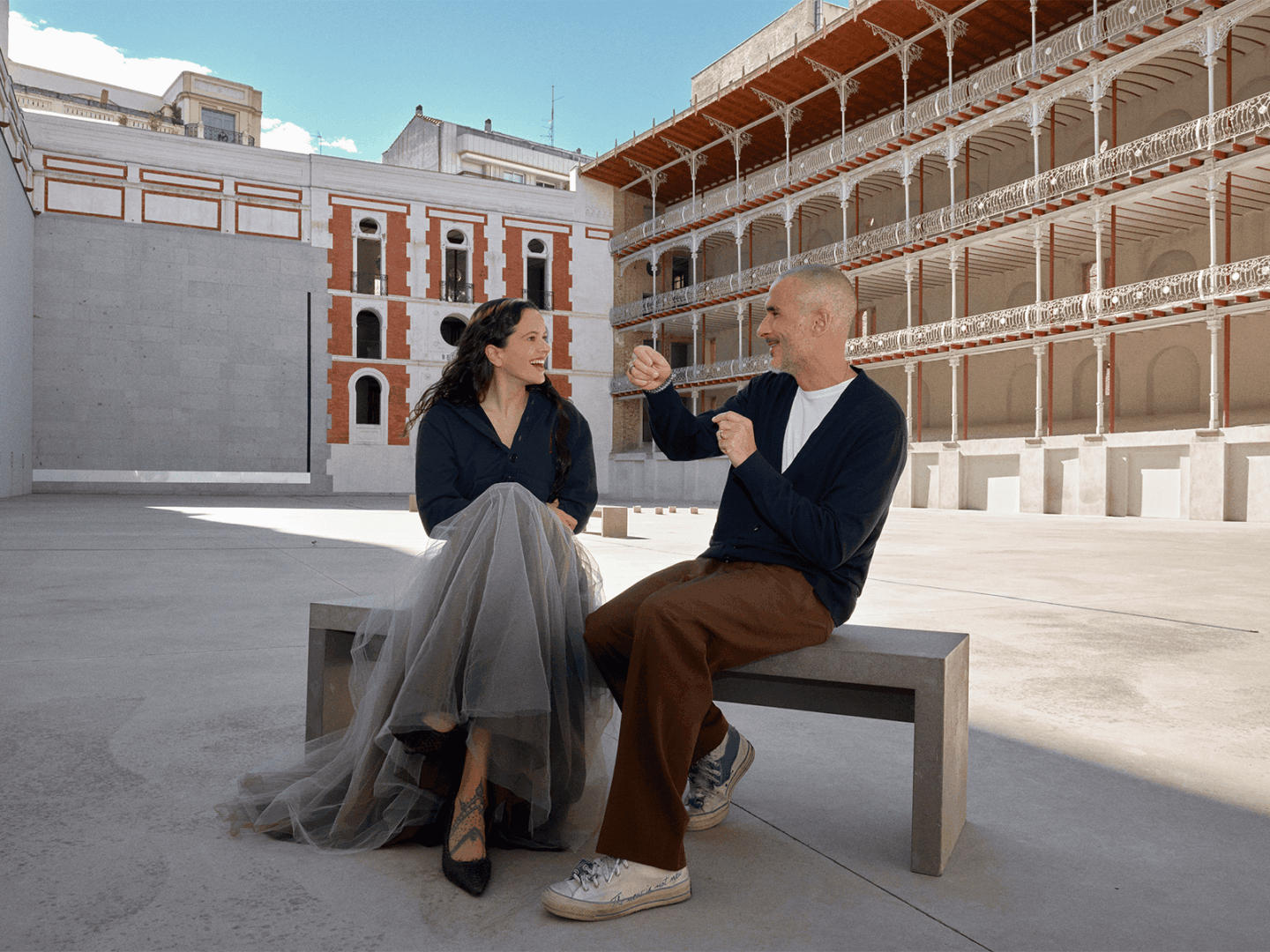After three years of creation and a process as intense as it was luminous, Rosalía joins Zane Lowe in Madrid to celebrate the launch of LUX, her fourth studio album, available on 7 November via Apple Music. In an honest and spiritual conversation, the Catalan artist speaks about patience, fragility, sisterly love, and the artistic leap that led her to work with the London Symphony Orchestra, Björk, and even sing in thirteen languages.
“Each project teaches me to be more patient,” says Rosalía. “It’s been three years, and so much can happen in three years… but I wanted to let the light in.”
Zane Lowe (ZL) – I loved what you said about Leonard Cohen and the idea of finishing a record in three stages. Were there many moments like that?
Rosalía (R) – Yes, because it’s been three years. And I adore Leonard. I love what he used to say: “Forget the perfect work. There’s a crack in everything. That’s how the light gets in.” I think I wanted to let the light in, to make more space for it.
(ZL) – In the interview you mention a conversation with your sister during MOTOMAMI. What role did she play in this album?
(R) – A huge one. When I played MOTOMAMI for her, she said, “Why do you always have to destroy the song?” It hurt, of course, but it stayed with me. I thought, “I make music so people can feel something. Maybe they’ll feel more if I see it through.” I promised myself to make an album where I would complete the idea, not break the song just for the sake of it. LUX allowed me to grow as a songwriter and producer because of that.
(ZL) – Let’s talk about “Mio Cristo”. Why did it take you an entire year?
(R) – Because I wanted to write an aria. I spent a year at the piano, composing in Italian, inspired by the story of Saint Clare and Saint Francis of Assisi. Their friendship, so pure. I first wrote it in Spanish, then translated it. It was a long search between Miami and Los Angeles until one day I knew I finally had my aria.
(ZL) – In “Tuya” you sing in Japanese. What inspired that?
(R) – The story of Ryōnen Gensō, a Japanese saint who disfigured her face in order to be accepted into a monastery. I was struck by her level of devotion. It made me reflect on the limits of sacrifice and what we consider extreme.
(ZL) – How did you feel when you finished the album?
(R) – I was on the verge of a mental breakdown. If I hadn’t delivered the vinyl that week, the release would have been delayed until next year. Something inside me told me the record had to come out this year. Some of the songs are different on the vinyl; it was a multi-stage process. I was literally shaking from stress.
(ZL) – What was it like working with the London Symphony Orchestra?
(R) – Everything was written and arranged precisely. We arrived with the sheet music and knew exactly what had to happen. The chorus of “Porcelana”, for instance, is inspired by an Amapiano-style bass line, but played with timpani. We recorded it that way, with the full orchestra. It was magical.
(ZL) – You’ve decided to open with “Berghain”. It’s aggressive, intense. Why that choice?
(R) – Because it represents the orchestral intention of the album. MOTOMAMI was minimalist; this is maximalism. Brutalism. “Berghain” has the full orchestra, the full choir, everything. And the name has a double meaning. Yes, it’s the club, but it also means “a group of trees in the forest”. For me, it’s a metaphor for the mind: we all have our own internal labyrinths.
(ZL) – And you’re collaborating with Björk again.
(R) – She’s my mother. Mother, mother, mother, without a doubt. She’s the most inspiring. She and Patti Smith are my artistic mothers. Both are so free and irreverent. I saw Patti perform in Madrid recently, doing Horses. She was spitting on stage with such elegance. It was a masterclass. Reminding yourself not to care — that’s important.
(ZL) – At this stage, it seems you’ve reached a new vocal level.
(R) – Totally. I don’t think I could have sung like this before. During MOTOMAMI I already wanted to push my limits, but I wasn’t ready yet. This time I allowed myself to write from a different place. If you write from that place, you can sing from that place. And spirituality has always been there for me. My connection with God is always present.
(ZL) – Tell me about “Memória”, your collaboration with Carminho.
(R) – Carminho wrote the lyrics. It’s incredible. It’s about how you can forget who you were and who you are. Sometimes memories feel more real than others. Each time you tell them, that’s your truth in that moment.
Sigue toda la información de HIGHXTAR desde Facebook, Twitter o Instagram
